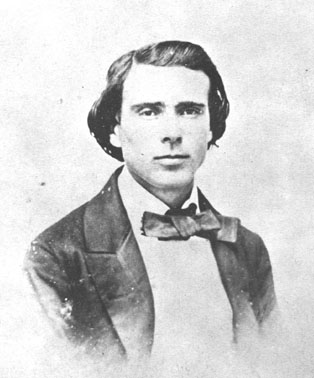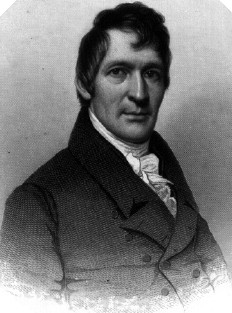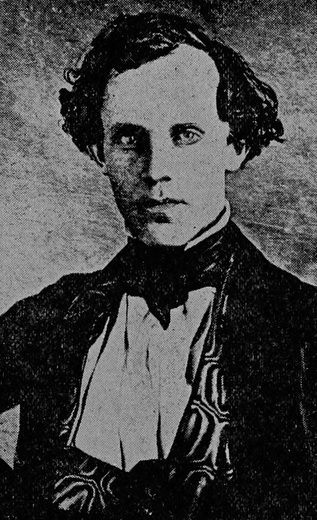Related Research Articles

William Livingston was an American politician and lawyer who served as the first governor of New Jersey (1776–1790) during the American Revolutionary War. As a New Jersey representative in the Continental Congress, he signed the Continental Association and the United States Constitution. He is considered one of the Founding Fathers of the United States and a Founding Father of New Jersey.
Nathaniel Pitcher was an American lawyer and politician who served as the eighth governor of New York from February 11 to December 31, 1828.

John Kean was an American merchant, banker and member of the Continental Congress from South Carolina who was the first in a long line of American politicians.

Killian Killian Van Rensselaer was an American lawyer and Federalist politician who served in the United States Congress as a Representative from the state of New York.

Cadwallader David Colden was an American politician who served as the 54th Mayor of New York City and a U.S. Representative from New York.

Samuel Provoost was an American Clergyman. He was the first Chaplain of the United States Senate and the first Bishop of the Episcopal Diocese of New York, as well as the third Presiding Bishop of the Episcopal Church, USA. He was consecrated as bishop of New York in 1787 with Bishop William White. He was the first Episcopal Bishop of Dutch and Huguenot ancestry.

Josiah Gregg was an American merchant, explorer, naturalist, and author of Commerce of the Prairies, about the American Southwest and parts of northern Mexico. He collected many previously undescribed plants on his merchant trips and during the Mexican–American War, for which he has often been credited in botanical nomenclature. After the war he went to California, where he reportedly died of a fall from his mount due to starvation near Clear Lake on 25 February 1850, following a cross-country expedition which fixed the location of Humboldt Bay.

Cornelius Peter Van Ness was an American politician and diplomat who served as the tenth governor of Vermont from 1823 to 1826 and Envoy Extraordinary and Minister Plenipotentiary to the Kingdom of Spain from 1829 to 1836. Van Ness was a Democratic-Republican and later a Democrat.

James Grant Wilson was an American editor, author, bookseller and publisher, who founded the Chicago Record in 1857, the first literary paper in that region. During the American Civil War, he served as a colonel in the Union Army. In recognition of his service, in 1867, he was named brevet brigadier general of volunteers to rank from March 13, 1865. He settled in New York, where he edited biographies and histories, was a public speaker, and served as president of the Society of American Authors and the New York Genealogical and Biographical Society.

Andrew DeWitt Bruyn was an American lawyer, jurist, and politician who served as a U.S. Representative from New York from 1837 to 1838.

Thomas Storm was an American Revolutionary war officer and state legislator, rising to Speaker of the New York State Assembly in 1802.
Charles Robert Coster was an American soldier and public official, who is best known for commanding a brigade at the Battle of Gettysburg.
Fletcher Mathews Haight was a United States district judge of the United States District Court for the Southern District of California.

Joshua Waddington was a British-American who was one of the founders of the Saint George's Society, the Bank of New York, and was the defendant in the case Rutgers v. Waddington before New York City Mayor's Court.
Clarkson Floyd Crosby was an American politician from New York.
Norvell P. Cobb was an American Civil War officer, banker and hotelier.
Colonel Kiliaen van Rensselaer was a colonial American soldier and politician who was a member of the prominent Van Rensselaer family.
Domingo Marcucci Jugo, was a Venezuelan born 49er, shipbuilder and shipowner in San Francisco, California. He owned or captained some of the many steamships, steamboats, ferries, and sailing ships he built at San Francisco and elsewhere on the Pacific coast.
Guido Hugo Marx was an American mechanical engineer who was active in progressive politics, the technocracy movement, and civil liberties. He contributed to helping feed and house hundreds of the 1906 San Francisco earthquake survivors and led the Stanford Academic Council through changes in academic freedom, culminating in founding both the American Association of University Professors and the California chapter of the American Civil Liberties Union.

Thomas Turner was a United States Navy rear admiral. He served as commander of the Pacific Squadron from 1869 to 1870. Turner fought in the Mexican–American War and, though a Virginian, served in the Union Navy during the American Civil War.
References
- 1 2 The New York genealogical and biographical record, "New York Genealogical and Biographical Society; Greene, Richard Henry, 1839-1926, ed; Stiles, Henry Reed, 1832-1909, ed; Dwight, Melatiah Everett, ed; Morrison, George Austin, 1864-1916, ed; Mott, Hopper Striker, 1854-1924, ed; Totten, John Reynolds, 1856-1936, ed; Pitman, H. Minot (Harold Minot), 1888- ed; Ditmas, Charles Andrew, 1887-1938, ed; De Forest, Louis Effingham, 1891- ed; Mann, Conklin, ed; Maynard, Arthur S., ed
- ↑ San Francisco Call, Volume 87, Number 99, 9 March 1902, p.6 FIRST BOATBUILDER ON THE PACIFIC COAST by J. M. Scanland